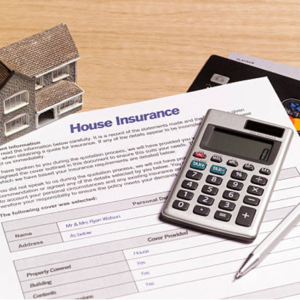As the coronavirus (Covid-19) spreads across the U.S., it’s upending our lives and businesses throughout the country. Schools are closing, sporting events have been postponed or canceled and many businesses are asking their employees to work remotely.
Covid-19 has been declared a pandemic, a global outbreak of disease. Pandemics happen when a new virus emerges with widespread, sustained transmission.
Currently, according to a real-time dashboard from Johns Hopkins University. more than 137,000 confirmed cases have been reported globally with over 1,200 cases in the U.S. The numbers are constantly changing.
While some lines of insurance such as health, workers’ compensation, and life will most likely have covered claims; the impact on property and casualty insurance is expected to be minimal. Even business interruption and travel insurance are not expected to result in a large number of claims.
This article looks at the general impact of the coronavirus to the insurance industry, specifically, property and casualty insurance.
Economic Impact
The U.S. economy has been impacted by Covid-19 in many ways, including stock market declines, supply chain disruptions and cancellations of business travel.
Consumer demand is expected to decline, resulting in big reductions in revenue. The travel industry is feeling the brunt of the virus as air travel and hotels seeing widespread cancellations.
When companies are forced to close, employees will receive less money and, in some cases, will not receive pay.
The U.S. Labor Department has made it easier for workers to receive unemployment insurance as a result of losing their job due to the virus and some employers are providing regular wages to hourly workers who no longer have work due to sports and entertainment events cancellations.
While the Centers for Disease Control and Prevention has advised businesses to require sick employees to stay home, establish sick leave policies and refrain from punishing sick employees, there is no federal policy requiring employers to provide paid sick leave and only 10 states require it.
Small businesses, including insurance agencies, are expected to feel the most pain as customers stay away and workers miss work. The U.S. government is expected to offer some relief in the way of loans but the impact will still be devastating causing some businesses to shut down for good.
Financial Impact
The global and U.S. stock markets are seeing tremendous volatility and it’s expected to continue for the foreseeable future.
A recent poll showed almost half of all Americans believe the virus poses a high threat to the U.S. stock market and the global economy. As the virus continues to disrupt lives, those numbers will certainly go up.
Insurance stocks – particularly health insurance stock – have been hard hit but not necessarily as a result of the coronavirus. Political issues related to health insurance have been affecting stocks for several months.
Despite a strong labor market, the current U.S. economy was already showing signs of uncertainty with low inflation and investment. The impact of the coronavirus is likely to heighten the unpredictability of the market though economists are mixed on the exact effect.
All companies are advised to ensure their liquidity is sufficient to get through the virus. They should also define scenarios for their financials (cash flow, P&L, balance sheet)
The Covid-19 outbreak is not expected to have an adverse impact on the financial results reported by U.S. property/casualty companies or their financial ratings, according to Fitch ratings
General Insurance Impact
All insurance companies have instituted business continuity plans in order to protect their workers yet still provide uninterrupted service to their customers.
Insurers are making sure there are enough employees available to process claims, answer questions and provide financial assistance.
As always, if you have any questions about your insurance you should contact your insurance agent.
Health and Life Insurance Impact
Health insurance companies will feel the most pain from this crisis. Insurance companies including Aetna, Blue Cross Blue Shield Association, Centene, Cigna, Humana, and UnitedHealthcare have agreed to waive copays for coronavirus testing and offering free telehealth services.
In addition, they will need to pay claims for any medical treatments required by members contracting the virus. Some prescription drug insurers are waiving early limits on 30-day prescriptions and waiving refill policies.
Life insurance companies may need to pay claims for anyone who dies as a result of Covid-19. However, accident, disability, accidental death, and dismemberment insurance policies exclude claims related to the disease.
Property/Casualty Insurance Impact
Property insurers are likely to see minimal if any, exposure to claims related to the pandemic especially related to personal policies. Traditional property insurance policies cover physical loss or damage to cars, homes and personal property.
Most commercial property and business insurance policies do not cover losses related to a pandemic.
Contingent business interruption coverage generally requires direct physical damage to the property of a customer or supplier. The coronavirus would not encompass physical damage to property so any losses would not be covered.
Some policies include sub-limited coverage for income loss associated with disease for hospitality, retail, and entertainment businesses.
It’s widely expected insurance underwriters will soon respond with policies covering losses for coronavirus and other infectious diseases. Be sure to ask your insurer before renewing your policy.
Travel Insurance Impact
If you have to cancel travel plans canceled as a result of the coronavirus and have travel insurance, you may think your trip is covered. Unfortunately, there’s a good chance your policy does not cover your losses.
Generally, most travel insurers consider the coronavirus as a “foreseen” event, meaning losses are not covered. However, some travel insurance companies are making exceptions for certain coronavirus claims.
As Covid-19 continues to impact travel, you should check with your travel insurance company to see if any policy changes have been implemented for coronavirus-related claims.
Protecting You and Your Family
As the virus spreads, you should take steps to protect you and your family by taking steps to prevent you from getting sick or infecting others.
Medical experts believe Covid-19 spreads from person-to-person through a cough, a sneeze or a kiss. Here are some basic things you can do to keep you and your family safe:
- Don’t panic – remain calm especially if you have children
- If you feel sick, stay home
- Avoid contact with anyone
- Know the symptoms – the most common symptoms appear between two and 14 days after being infected and include fever, cough, and shortness of breath. Contact your doctor if you or your family members exhibit any of these symptoms
- Wash your hands with soap and water frequently – make sure to scrub between your fingers and under your nails. Wash for at least 20 seconds
- Avoid touching your eyes, nose and mouth with unwashed hands
- Clean and disinfect frequently touched objects and surfaces like phones, keyboards, and doorknobs.
- Do not stockpile masks – unless you are already infected, masks do not help and hoarding masks will limit the availability for health professionals
- Stock up on a 30-day supply of groceries, household supplies and prescriptions, just in case
- If you have any plans to travel, consult the CDC’s travel information page
- Stay informed by watching the news and consulting the CDC’s advisories and recommendations related to the coronavirus




